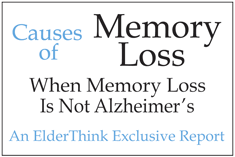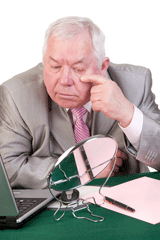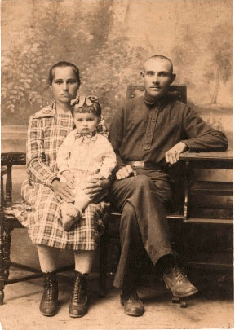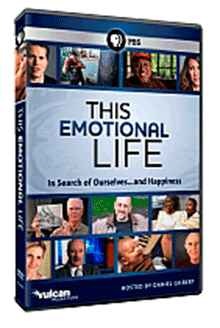 |
Depression Is Not NormalBy Gretchen Heuring | 07.02.2014 |
Most of us retired people are generally happy. Maybe it's better to say we are not unhappy. We have our coffee in the morning, bathe and groom ourselves, and move through our day. There are other people in our lives and we enjoy beauty and peaceful moments.
Yet, the highest incidence of suicide is among older people, primarily men. This cetainly suggests that quite a few of us are highly depressed. What is this monster called "depression" that takes our lives before anyone is ready? Suicide? Really? How much more could we hurt our loved ones. What brings about such despair?
Some researchers say depression can be caused by a chemical imbalance and sometimes there is no understandable cause. Others say there is always a trigger. They say it could be many things like an loss, a bad memory, or an alcoholic rage, but there is always a trigger. Bang!
What Is Depression?
In general, depression means a sad mood that exceeds normal sadness or grief. Sometimes the intensity of depression can interfere with a person's ability to manage the simplest daily tasks. When the depressed person is unable to manage for a significant period of time, then help is needed. Often an older person stubbornly resists help. "I'm fine," he says, "leave me alone!" Leaving him alone is the worst thing we could possibly do.
There are diseases that can cause symptoms of depression and they should be ruled out by a physician and testing. These diseases include thyroid disorders, diabetes, alcoholism, Parkinson's disease, multiple schlerosis, stroke, and some viral infections.
Many people with depression also have physical symptoms. Depression can make any kind of chronic pain worse, so headache, back pain and joint pain could be more acute. Depression can cause chest pain, stomach problems, fatigue, sleeplessness, weight loss or weight gain.
How do you get a crabby, depressed oldster to see a doctor?
Take a deep breath. This is not an emergency. You need to take time to connect with him. No matter how difficult he may seem, he really needs you. Make some coffee or tea and something that tastes good. Fruit, or a muffin are an ideas. Go to a grocery if you need to. Talk to him about anything. If he has a TV on, turn it off. Tell him you really need a break from TV. Talk about the news, the weather, family. Smile at him. Pat his arm. Hug him if he will let you, move away gracefully if he won't. If he wants to comment about the smallest thing, listen carefully. Then leave. Tell him you will be back and give him a time. Tell him you would really like him to shave and shower before you come. Keep in mind that you can't "jolly him out of this." He may make an effort for you, but he is still depressed, so that effort will be really big for him. Maybe tomorrow you will be able to take him to a doctor. Find an Urgent Care source nearby and discover how to get there the best way. If he decides to go, you can't wait for an appointment.
Depressed people are unable to change their mood or approach to life. They feel sad or hopeless or numb every day. It is difficult for them to find enjoyment in anything, and it's hard to make decisions. It's common for depressed people to feel overly guilty for minor mistakes or for things that aren't really their fault. This form of sadness is a slippery slope that could lead to suicide. We should all take it very seriously.
The best thing for a seriously depressed person is lifestyle changes and outside help might be required to get things on the right track. Home Health Aids are available and, though there are hoops to jump, Medicare can be used to pay for them. Bathing and grooming regularly at the same time every day are important. A healthy diet, a regular exercise program, yoga and breathing exercises are all a good beginning. So these are your goals for your sad older person. Try to remember that this is not about you. If you have issues, they will have to wait until he is healthy enough to work with you on them.
There are new drugs on the market that will help but they take time to work. In fact, it can take a few weeks to discover the right dose or meds combination. During that time, the depressed person will need support and encouragement every day.










